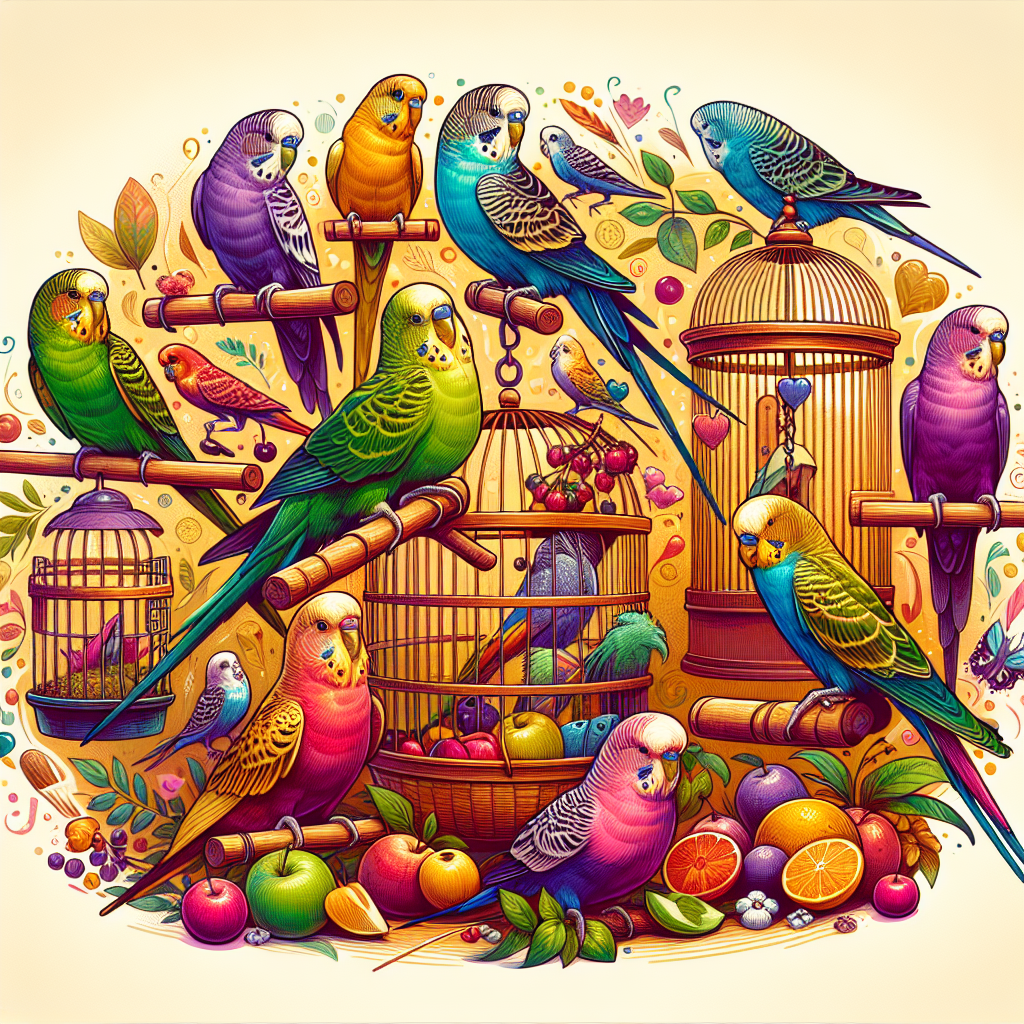Feathered Friends: The Ultimate Guide to Caring for Pet Birds

Birds have long captivated humanity with their vibrant colors, cheerful songs, and engaging personalities. Whether you’re drawn to the exotic beauty of parrots, the playful nature of cockatiels, or the delicate charm of finches, caring for a pet bird can be immensely rewarding. However, it also comes with its own set of responsibilities. In this guide, we will delve into everything you need to know to ensure your feathered friends thrive in a loving and healthy environment.
Choosing the Right Bird
Before welcoming a bird into your home, it’s crucial to choose the species that best suits your lifestyle. Here are some popular options:
-
Parrots: Known for their intelligence and vocal abilities, species like African Greys, Budgerigars (Budgies), and Amazons can be affectionate companions. However, they require significant social interaction and mental stimulation.
-
Canaries: Perfect for those who enjoy music but prefer a low-maintenance pet, canaries are beautiful singers and come in a variety of colors. They thrive in pairs but can be independent.
-
Cockatiels: These friendly birds are great for first-time bird owners. They enjoy interaction, can be trained to whistle tunes, and are relatively easy to care for.
-
Finches: If you’re looking for a social bird that does well in small flocks, finches are a great choice. They are less hands-on but are delightful to observe and listen to.
- Lovebirds: Small, affectionate, and playful, lovebirds thrive in pairs. They require ample social interaction, either with their mate or human companions.
Setting Up the Perfect Habitat
Creating a comfortable living environment is essential for your bird’s well-being. Here are some tips to set up an ideal habitat:
Cage Size and Type
-
Cage Size: Choose a cage that allows your bird enough space to fly, explore, and stretch its wings. The minimum dimension should be at least twice the wingspan of the bird, but bigger is always better.
- Cage Material: Opt for a sturdy cage made of safe materials. Avoid cages with toxic coatings and ensure the spacing between bars is appropriate to prevent escapes or injuries.
Cage Accessories
-
Perches: Offer a variety of perches made from different materials and textures to keep their feet healthy and strong. Natural branches are great for providing stimulation.
-
Toys: Birds love to chew, swing, and explore. Provide a range of toys, such as bells, mirrors, and puzzle toys, to keep them entertained and mentally stimulated.
- Food and Water Bowls: Invest in sturdy, easy-to-clean bowls. Ensure they are placed securely and out of reach of bedding material to minimize contamination.
Location
Position the cage in a well-lit area that’s away from drafts and direct sunlight. Birds are social creatures and enjoy being a part of family activities. However, make sure the cage isn’t too close to any hazards like fans or pets.
Nutrition: The Key to a Healthy Bird
A well-balanced diet is crucial to your bird’s health. While specific dietary needs can vary greatly among species, here are some general guidelines:
-
Seeds: While seeds should be a part of your bird’s diet, they should not make up the entirety of it. Offer a high-quality seed mix supplemented with pellets.
-
Pellets: A formulated pellet diet can provide essential nutrients and should comprise a significant portion of their overall food intake.
-
Fresh Fruits and Vegetables: Provide a variety of fresh produce daily (avoid avocados, which are toxic to birds). Leafy greens, carrots, berries, and sweet potatoes are excellent options.
- Water: Refresh the water daily and clean the bowl regularly to prevent bacterial growth.
Grooming and Health Care
Maintaining hygiene and health is vital for your bird’s well-being:
Feather Care
-
Bathing: Most birds enjoy bathing. Offer a shallow dish of water for them to splash in or mist them lightly with a spray bottle.
- Beak and Nail Care: Regularly check your bird’s beak and nails. If needed, consider professional grooming from an avian veterinarian.
Health Monitoring
Be observant of changes in your bird’s behavior, such as changes in appetite, vocalizations, or droppings. Regular vet check-ups are crucial. Make sure to find an avian veterinarian knowledgeable about bird species.
Social Interaction
Birds are highly social and thrive on interaction with their owners. Spend time with your bird every day to build a strong bond. Engaging in training sessions can enrich their lives and provide mental stimulation. Parrots and cockatiels particularly benefit from socialization and may even learn to mimic speech.
Enrichment and Playtime
Provide opportunities for exercise outside of the cage. A safe, supervised space for your bird to play helps to keep them active and engaged. You can also create foraging opportunities by hiding treats around their environment.
Conclusion
Caring for a pet bird requires commitment, patience, and love. Understanding their unique needs and behaviors will ensure that your feathered friend remains happy and healthy. By providing a suitable habitat, a balanced diet, regular veterinary care, and plenty of social interaction, you will enjoy many joyful years together. Your pet bird is more than just a pet; they can become a cherished member of your family, bringing endless joy and companionship into your life.